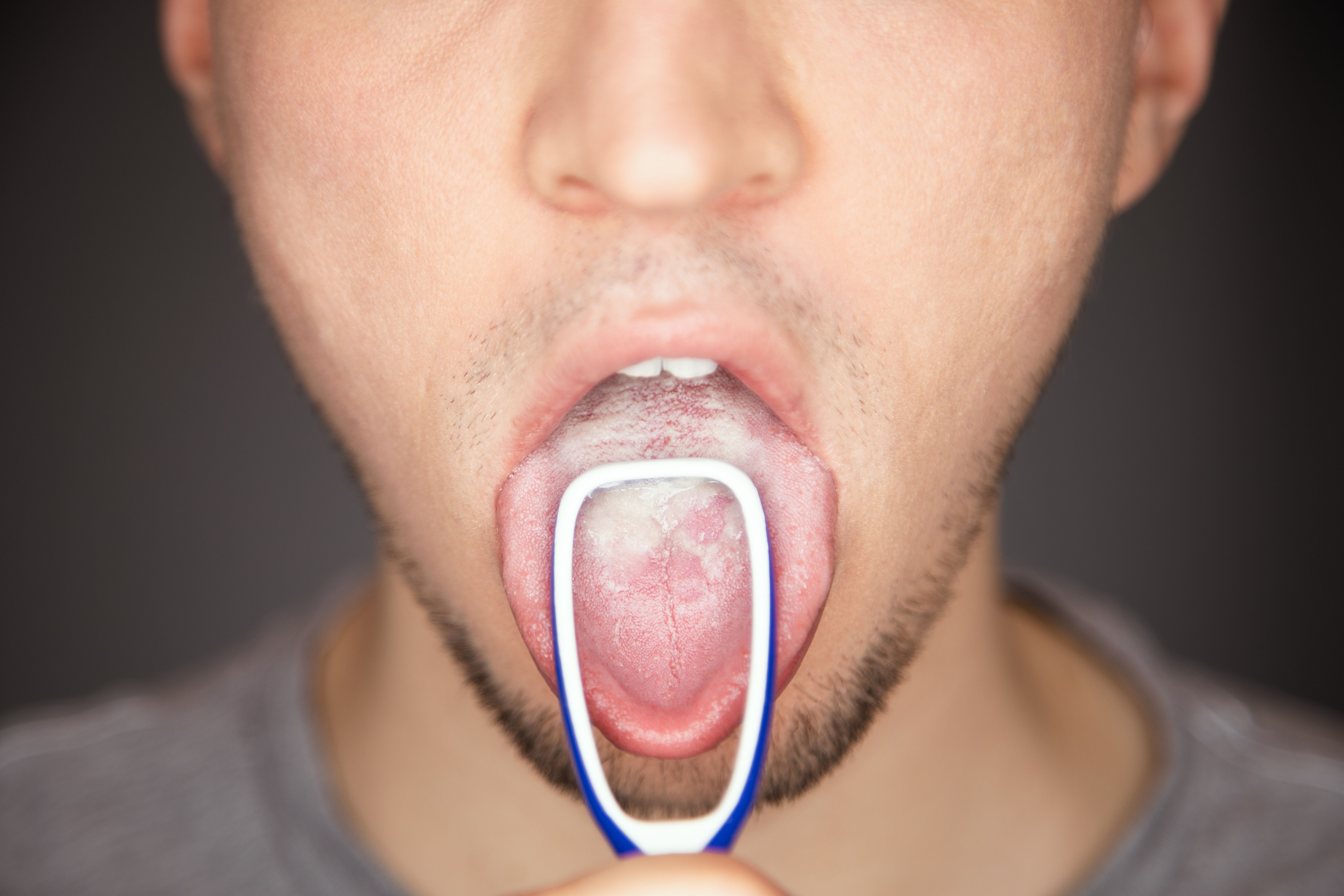Have you ever looked at a tongue scraper in the drug store and thought, “What in the world is that thing for?” Or maybe you’ve seen someone tout the benefits of tongue scraping on social media and thought, “How does that work?” These little tools might seem odd. However, when combined with proper brushing and flossing, a tongue scraper can be an extra way to keep your mouth fresh and clean.
Let’s take a look at what tongue scrapers are, how they work, and whether they’re worth incorporating into your oral hygiene routine.
What is a Tongue Scraper?
A tongue scraper is a simple tool designed to remove bacteria, food debris, and dead cells from the surface of the tongue. It usually has a flat or slightly curved head attached to a handle that makes it easier to scrape the back of the tongue.
Tongue scraping is not a new concept. This type of tool has been used for centuries in Eastern medicine and Ayurveda, where the practice is believed to help remove toxins, improve digestion, and promote overall health.
Traditional tongue scrapers were made of materials like wood, ivory, or bones. Today, they are made from plastic, stainless steel, or copper. They come in a variety of shapes, sizes, and prices. Patients can find them at drug stores or online.
Why Scrape Your Tongue?
The mouth contains about 20 billion microbes, and a large portion of these live on the tongue. The back part of the tongue has the largest amount of bacteria, and it is also the area that is most difficult to clean.
While not all microbes are harmful, it is important to clean the mouth regularly. If they are not removed, some microbes may cause health issues. For instance, the bacteria that cause plaque can lead to bad breath, cavities, and gum disease. Most people keep their mouths clean by brushing and flossing twice a day. Brushing the tongue with a toothbrush does clean it, but reaching the back may be uncomfortable. Some experts say that tongue scraping is a more effective way to remove plaque and bacteria from this hard-to-reach area.
Are Tongue Scrapers Worth It?
On average, tongue scrapers range from $3 to $10. When combined with regular brushing and flossing, tongue scraping has many benefits that can make the purchase worth it. If you struggle with bad breath or want to upgrade your oral hygiene routine, a tongue scraper is a simple, effective tool. Many people notice fresher breath and a cleaner mouth within just a few days of using one.
Several studies have shown that tongue scraping can reduce the number of bacteria in the mouth, which can help make breath fresher and may reduce the risk of cavities and gingivitis (gum disease).
Some people have also found that tongue scraping improves their sense of taste by removing the gunk that coats their taste buds.

How Do You Use a Tongue Scraper?
To get the most benefits of tongue scraping, it can be used once or twice a day. Scraping should be combined with brushing and flossing.
Using a tongue scraper is easy and safe following these steps:
- Stick out your tongue
- Place the scraper at the back of your tongue (as far as comfortable)
- Gently pull it forward, scraping off any debris
- Rinse the scraper and repeat a few times until your tongue feels clean
- Rinse your mouth and clean your scraper after each use
Remember to use gentle pressure. Pressing too hard can irritate the sensitive tissue on the tongue.
How Do You Clean a Tongue Scraper?
To keep a tongue scraper germ-free, rinse it thoroughly with warm water after each use. Use a toothbrush or soft cloth to remove any debris. For a deeper clean, wash it with soap and water or soak it in mouthwash. Once or twice a week the scraper should be disinfected: Metal scrapers can be boiled, and some plastic scrapers are dishwasher safe. Be sure to check the package for cleaning instructions.
Dry the tongue scraper well before storing it.
Tongue Scraping: Just One Piece of the Puzzle
While tongue scraping can be a great addition to your oral hygiene routine, it’s just one piece of the oral health puzzle. Brushing twice a day with a fluoride toothpaste, flossing, and seeing your dentist regularly are all important for keeping your smile fresh and healthy. If you have questions about tongue scraping or overall dental care, be sure to ask your dentist at your next visit. Find a dentist near you to get started.


